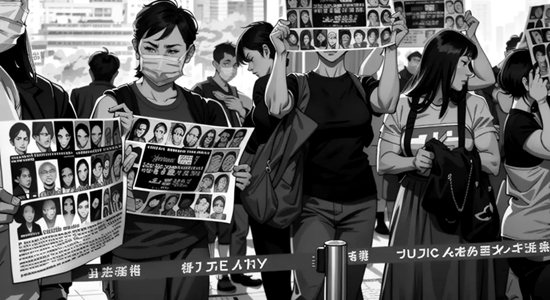
Currently dominating American news is former President Trump’s conviction on bogus charges, charges motivated by partisan hostility to Trump, not any kind of concern for justice.
Things could be worse. Example: Hong Kong.
According to The Diplomat, a primary election “Led to Hong Kong’s Biggest National Security Case” (May 30, 2024). For China, with its notions of “national security,” democracy is a national security threat. Practicing democracy is a form of subversion.
Verdicts in Hong Kong’s largest national security case to date, involving some of the city’s best-known pro-democracy activists, will be delivered as early as Thursday, more than three years after the defendants’ arrest.
In 2021, 47 pro-democracy activists were charged with conspiracy to commit subversion under the sweeping, Beijing-imposed national security law for their involvement in an unofficial primary election. The mass prosecution crushed the city’s once-thriving political activism and dimmed hopes of a more democratic Hong Kong….
In March 2020, Tai, a key organizer of the primary, said that obtaining a controlling majority in the legislature, which is typically dominated by the pro-Beijing camp, could be “a constitutional weapon with great destructive power.”
Ahead of the election, the government warned that the vote might violate the national security law. Despite this, the July 2020 pro-democracy primary was held and attracted an unexpectedly high turnout of 610,000 voters—over 13 percent of the city’s registered electorate.
Beijing quickly criticized the vote as a challenge to the national security law. In January 2021, over 50 activists were arrested under the law, and 47 of them were later charged.
The verdicts have been delivered. CCN reports that of the 16 defendants who chose to fight the charges, two have now been acquitted. (The acquittals may be temporary, though; prosecutors say they will appeal.) The other 14 have been convicted.
In the face of a trial without jury, 31 defendants [had] pleaded guilty, a move that in Hong Kong usually leads to a reduced sentence. But that strategy is now in doubt after another local national security law enacted earlier this year curtailed access to reduced sentences for guilty pleas.
The defendants face the possibility of life in prison.
“The fact that a Hong Kong court has found 14 people guilty for their peaceful activism illustrates the complete disrespect for democratic political processes and the rule of law,” says Maya Wang of Human Rights Watch.
Democracy as subversion
As far as the Chinese Communist Party is concerned, the smoking gun is the fact that many of the activists who participated in the 2020 primary declared that if elected they would use their legislative power to compel attention to the demands of Hong Kong’s pro-democracy protesters. One lawyer for the defense, Randy Shek, said that his clients had only sought to “hold power to account, and that could not be subversion.” For the Chinese government, though, trying to hold the Chinese government accountable is almost the very definition of subversion.
The government that regularly inflicts such injustices as imprisoning Hongkongers for participating in democracy still talks about how it is sticking like glue to the formula of “one country, two systems,” the formula according to which China was to give Hong Kong “a high degree of autonomy” for at least fifty years after Great Britain relinquished the city in 1997.
The Chinese government began the work of shrinking the degree of autonomy that Hong Kong was to be permitted almost immediately after the handover. Two decades later, the situation had become dire for Hongkongers.
In a 2019 piece discussing their disillusionment, The Economist noted that the double-system arrangement was to “last for 50 years” and also asserted, laughably, that “It is unclear what happens after 2047” (“What is China’s ‘one country, two systems’ policy?” June 30, 2019).
Democracy activists have been growing despondent as pro-establishment forces, some funded by Beijing, secured majorities in local councils and the territory’s legislature, and new loyalty tests were imposed on candidates for office. Frustration led to the so-called Umbrella Movement of 2014, a series of protests and sit-ins aimed at securing a promise of genuine democracy.
In response, the central authorities doubled down on the “one country” side of the deal. In 2016 and 2017 they secured the disbarring of six legislators for disrespecting China by mangling their oaths of loyalty. This year [2019] they have changed Hong Kong’s constitution to require the passage of a law that would punish people for insulting the national anthem, mirroring a law China passed in 2017. And they have pushed to change the current, colonial-era law that specifically bars extraditions to China. The proposed bill does not cover political offences, but many fear that the Communist Party could use it to secure the extradition of people deemed offensive.
Though Ms Lam has suspended the extradition bill, political veterans expect the Communist Party to tighten its grip in myriad, less visible ways. The central government still praises “one country, two systems” as a great innovation.
And here we are.





